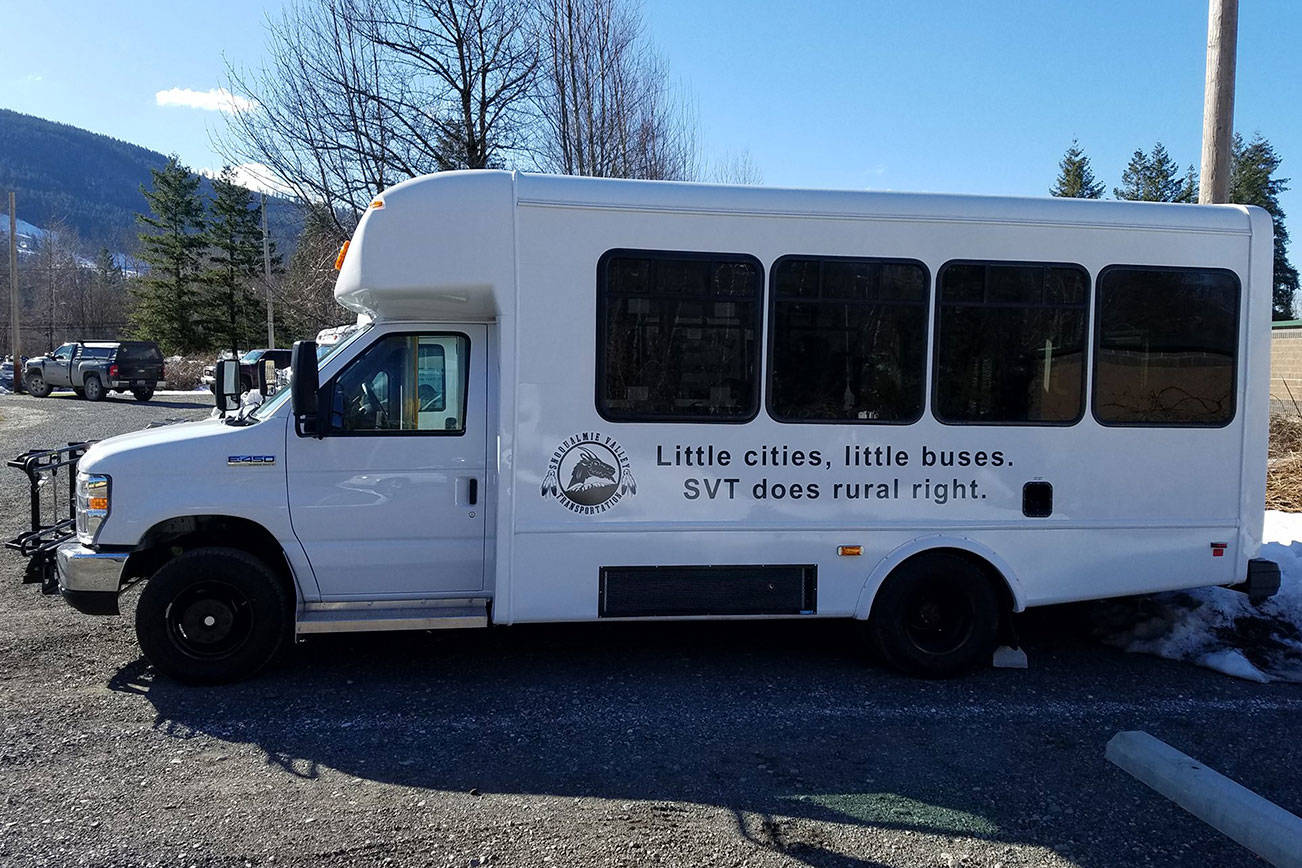Transit riders in the Snoqualmie Valley are short on route options and stuck waiting for hours for Metro service. But a new five-year plan is designed to change that.
Routes from the valley to Seattle or the Eastside have dwindled over the last decade as King County Metro has reduced service. Today, only two routes — 208 and 224 — exist to shuttle people from North Bend to Issaquah, and Duvall to Redmond. And these buses come only once every 90 to 120 minutes.
But a new five-year plan aims to change that. The plan is a collaboration between the valley’s only dedicated transportation provider — Snoqualmie Valley Transportation — and the six towns and cities in the valley.
“Its never been done before. We’ve never planned together for transit,” said Snoqualmie Valley Transportation Director Amy Biggs.
Snoqualmie Valley Transportation operates a fleet of buses in the valley, and connects to park and rides stops where riders can board Metro buses to reach Seattle and the Eastside. The agency took over operation of several routes that Metro discontinued. The transportation organization is funded by King County, the Snoqualmie Indian Tribe and the Washington State Department of Transportation.
The five-year plan outlines several goals, both system-wide and city-specific, that Biggs hopes to implement.
This includes a goal of having transit available on weekdays from 5 a.m. to 9 p.m., and weekends from 9 a.m. to 6 p.m. Other regional goals include connecting to neighboring cities inside and outside the valley, connecting to regional transit and offering buses at a frequency of one every 30 to 45 minutes.
It will try and run routes to people in unincorporated areas like Ames Lake Road, Carnation Farms Road and Tolt Hill Road. Unincorporated regions could also be connected with city centers, like Edgewick to North Bend, and Lake Job, Lake Margaret and Cherry Valley to downtown Duvall.
There are also plans to explore additional routes and services for each of the cities in the valley.
In North Bend, the plan calls for a pilot program connecting North Bend with South King County cities, designed to make commuting easier for workers who live south along State Route 18. Another pilot program would connect North Bend and Snoqualmie with a regional transit hub, expanding connections to Eastside cities like Issaquah.
In Snoqualmie, the plan calls for a needs assessment, looking into increased transportation between Snoqualmie Ridge and downtown Snoqualmie.
For Fall City and Preston, the plan calls for increasing access to the Preston Park and Ride. Preston and Fall City could also be considered separate entities for planning, meaning they could receive tailored services.
In Carnation, there’s a goal of creating more connections to Redmond Transit Center, Bear Creek Park and Ride and the Preston Park and Ride. Increasing the valley shuttle route frequency to every 30 to 45 minutes will also be considered.
In Duvall, Snoqualmie Valley Transporation wants to partner with Community Transit to study commuting patterns between Duvall and Snohomish County. They will advocate for expanding and continuing the Duvall to Monroe shuttle.
Biggs hopes that these changes will bring more riders into the system. The ridership goal for the next five years is to increase ridership by 25 percent on Snoqualmie Valley Transportation routes.


